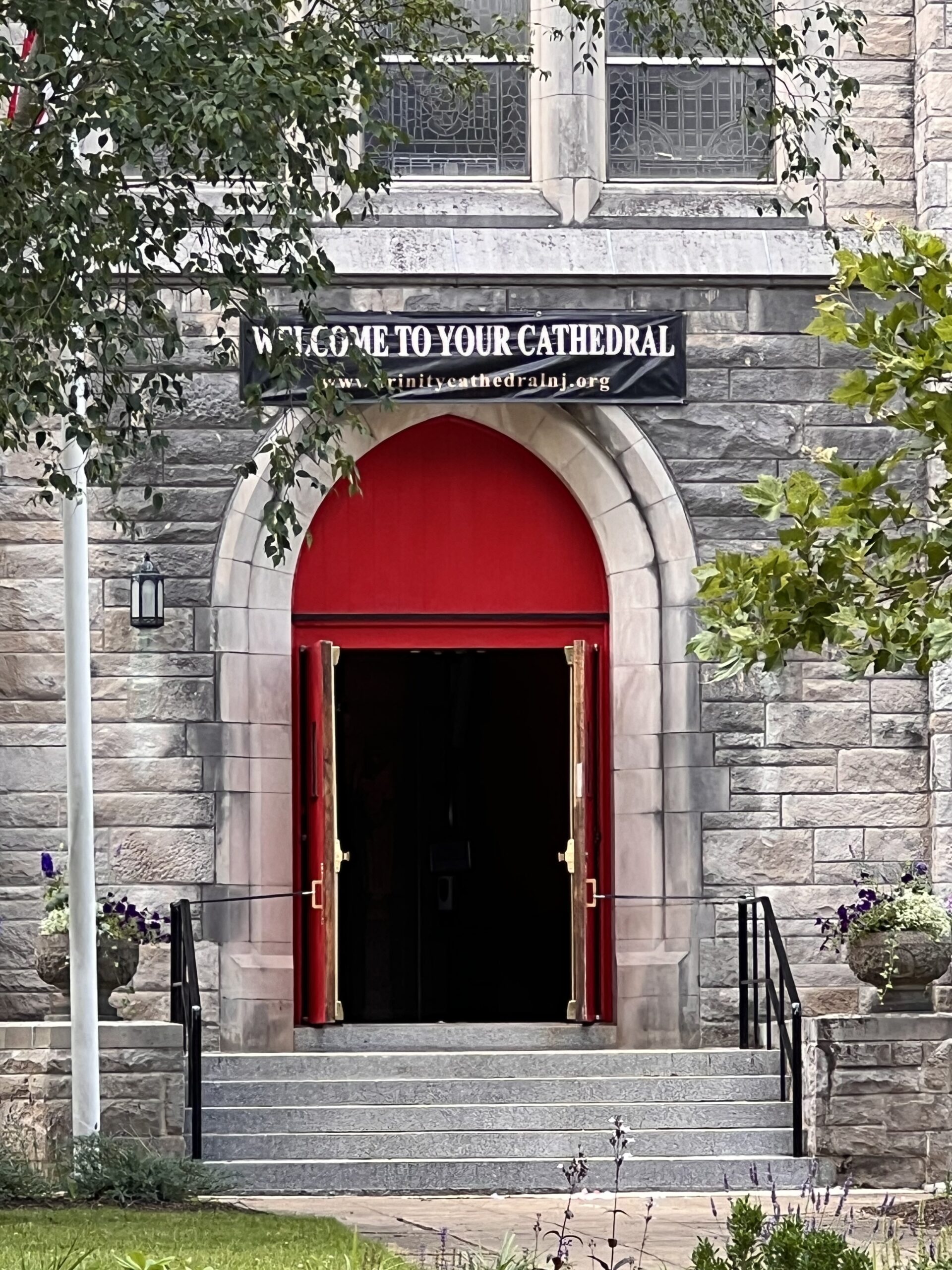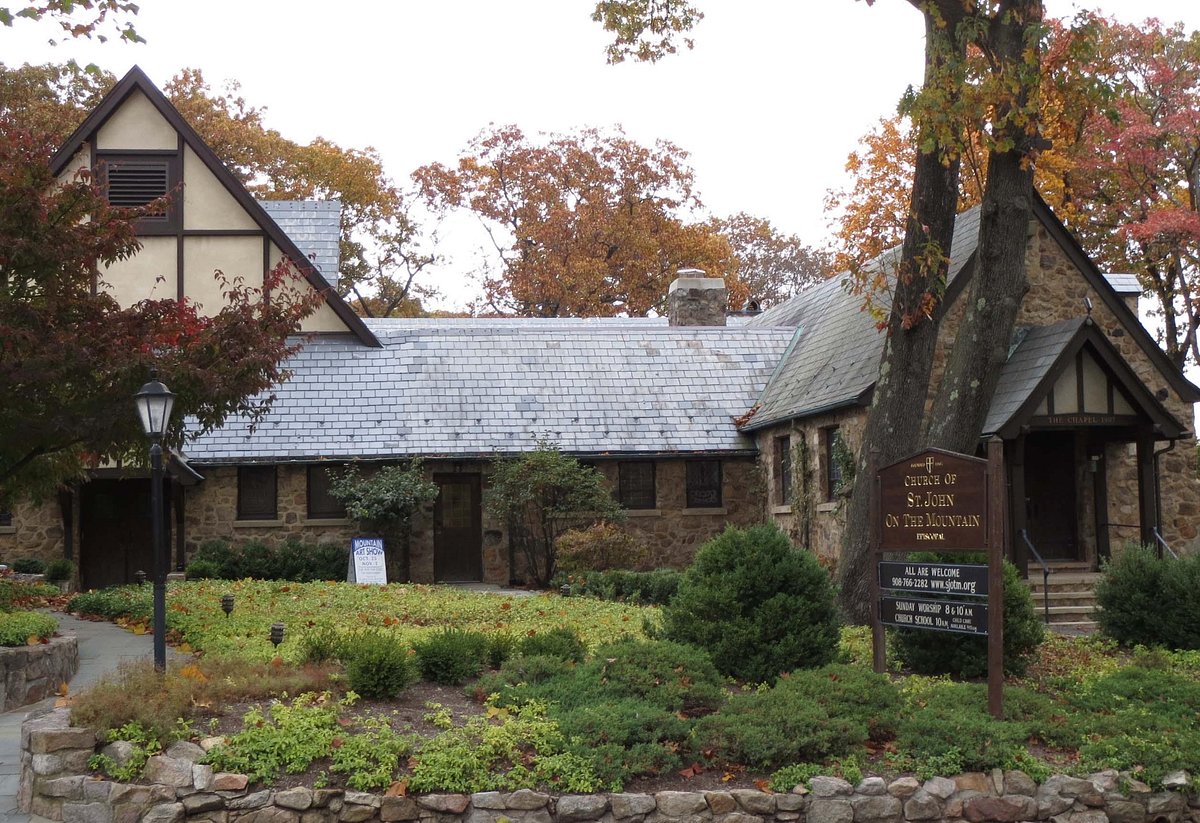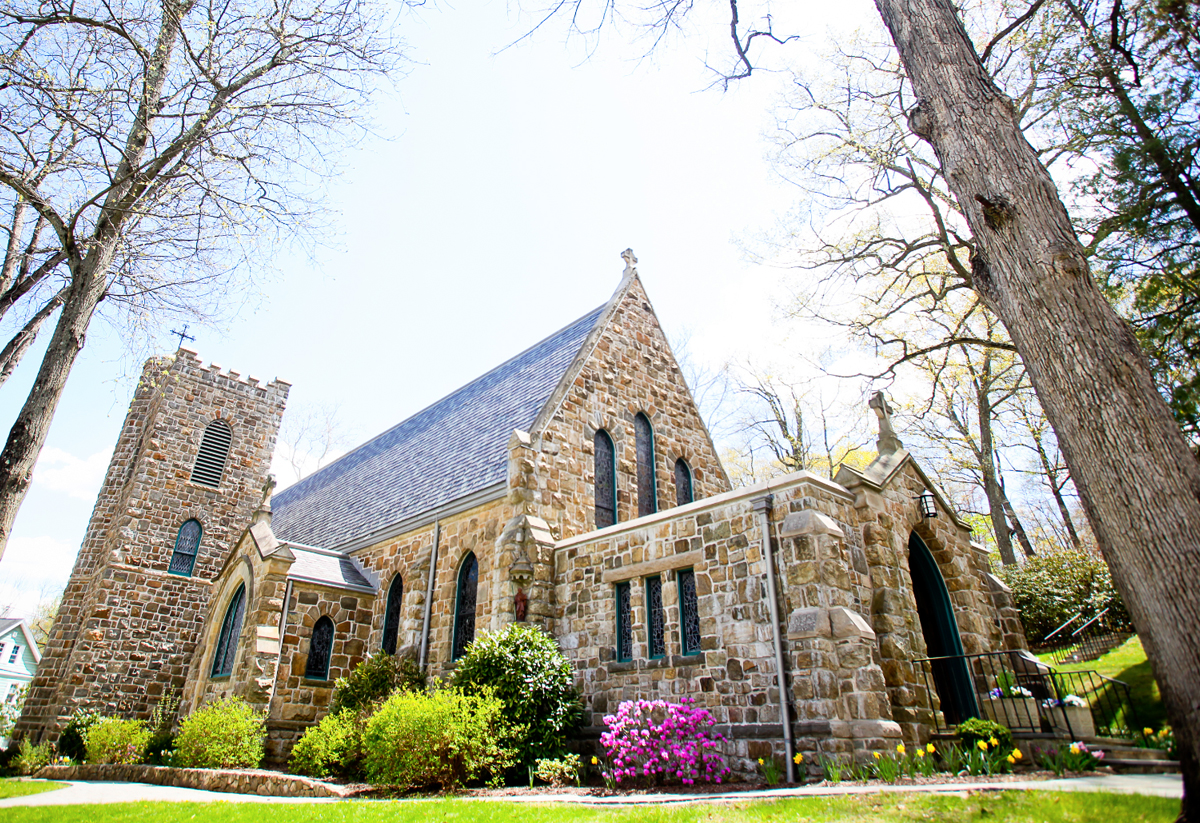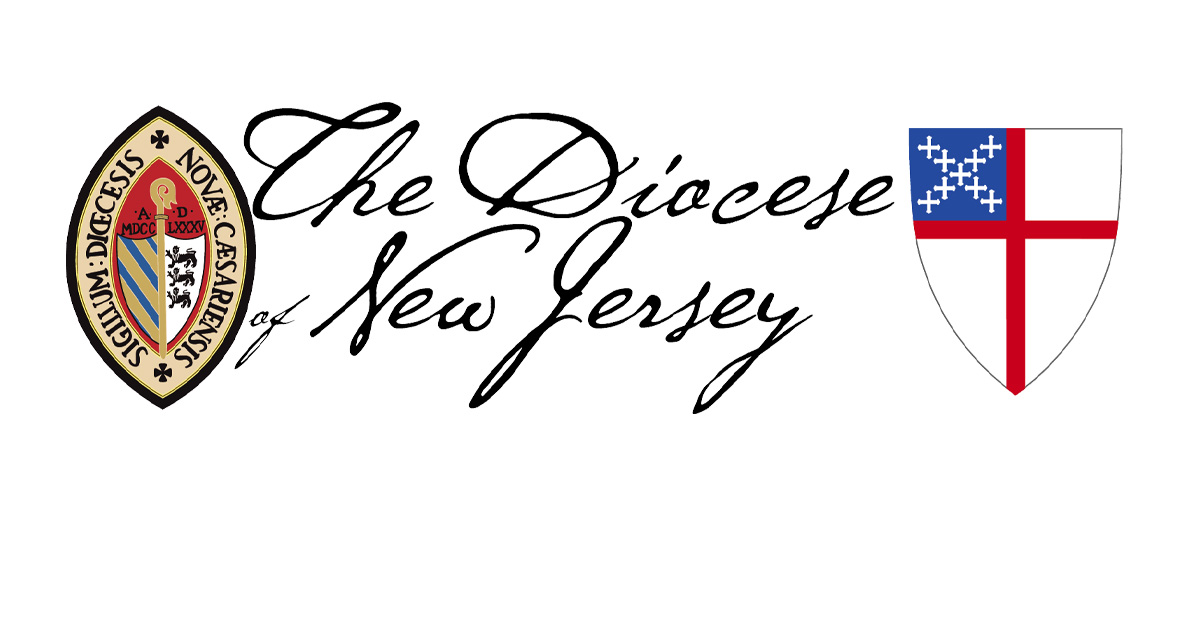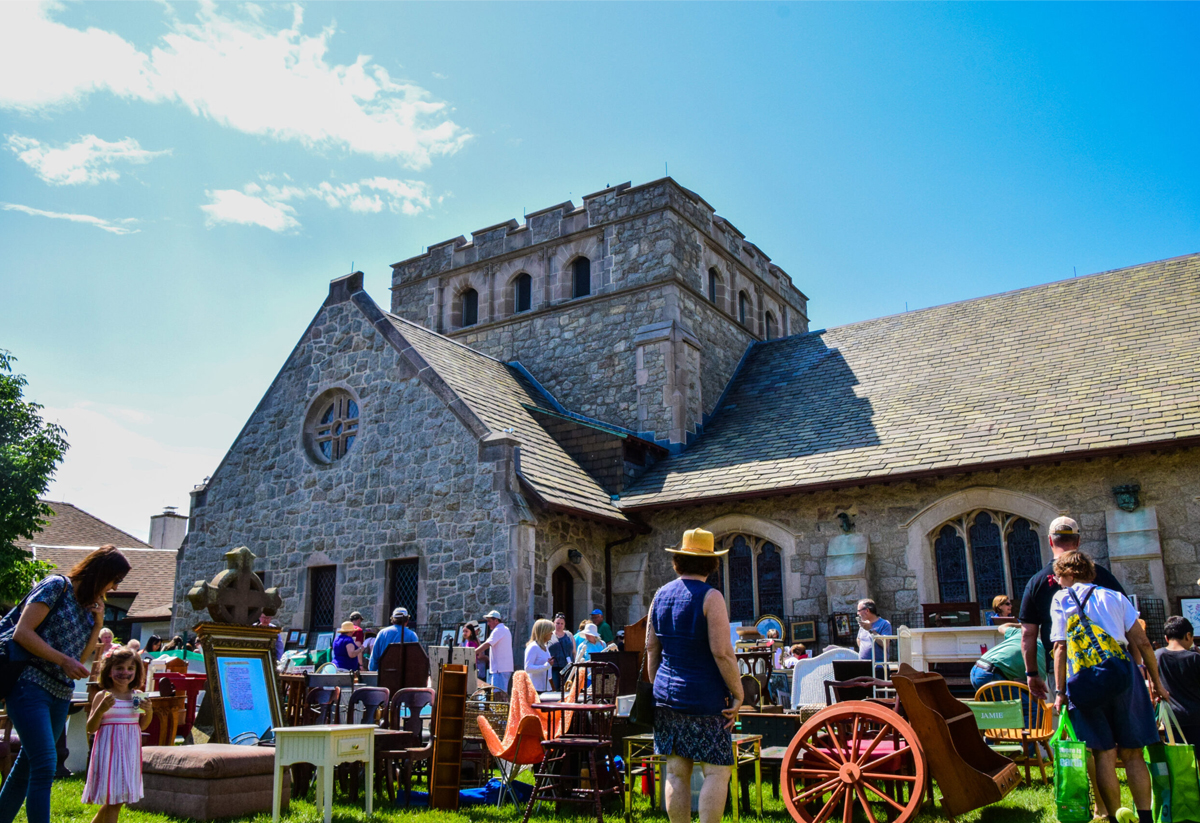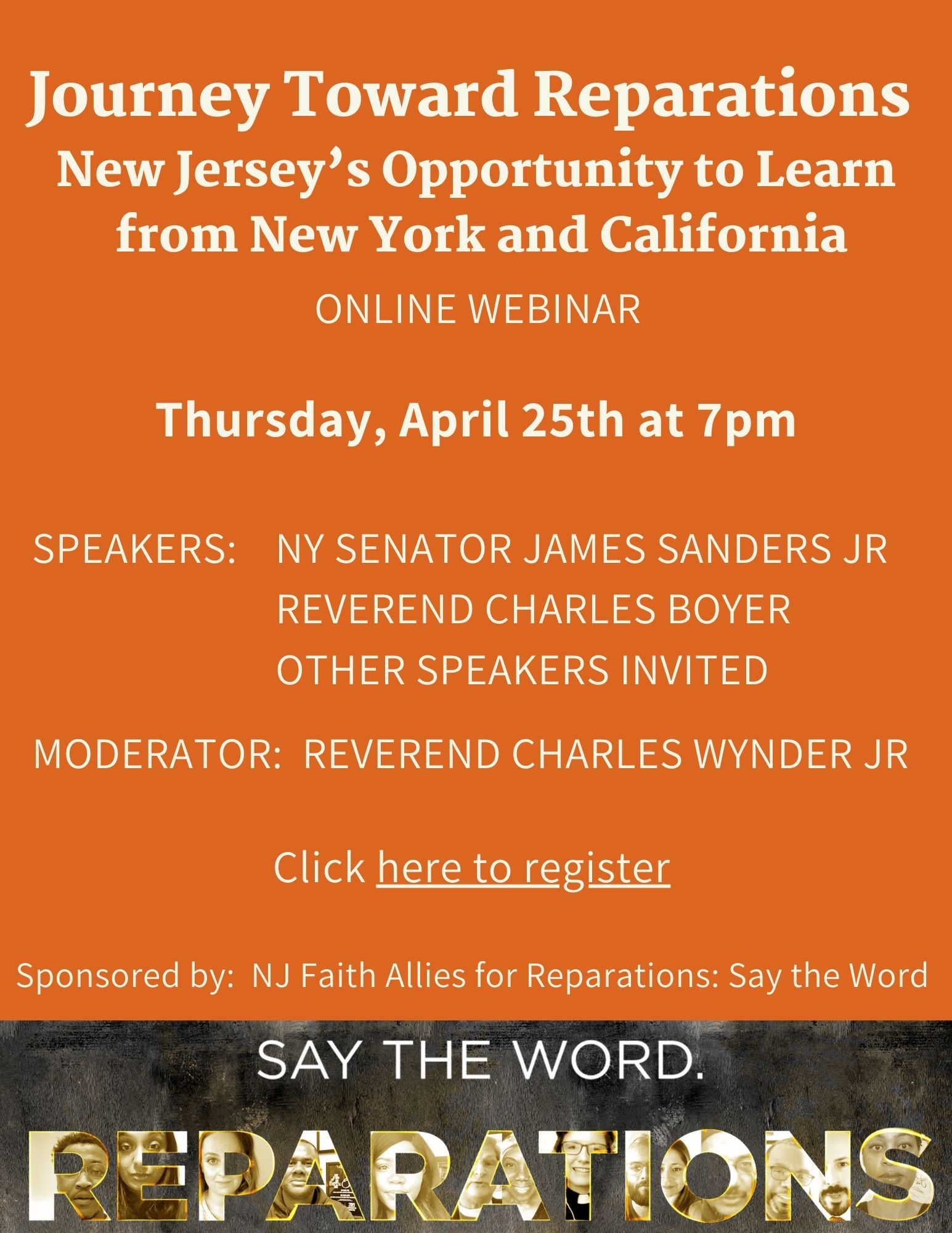
Dear People and Friends of the Diocese of New Jersey,
How has your Lent been? Has the quality and character of your Lenten observance been any different than that of other times of the year? How have you approached it?
The Collect for Ash Wednesday certainly infers one approach when it petitions God to “create and make in us new and contrite hearts that we, worthily lamenting our sins and acknowledging our wretchedness, may obtain of you, the God of all mercy, perfect remission and forgiveness.”[1] I suspect the idea that we are sinful, wretched people makes most of us most uncomfortable, perhaps even to the point of dismissing the idea altogether. It’s challenging to consider how selfish and self-focused we can be, both individually and as a society. But we are. And the collect also makes clear the answer to this—God’s grace in Jesus Christ.
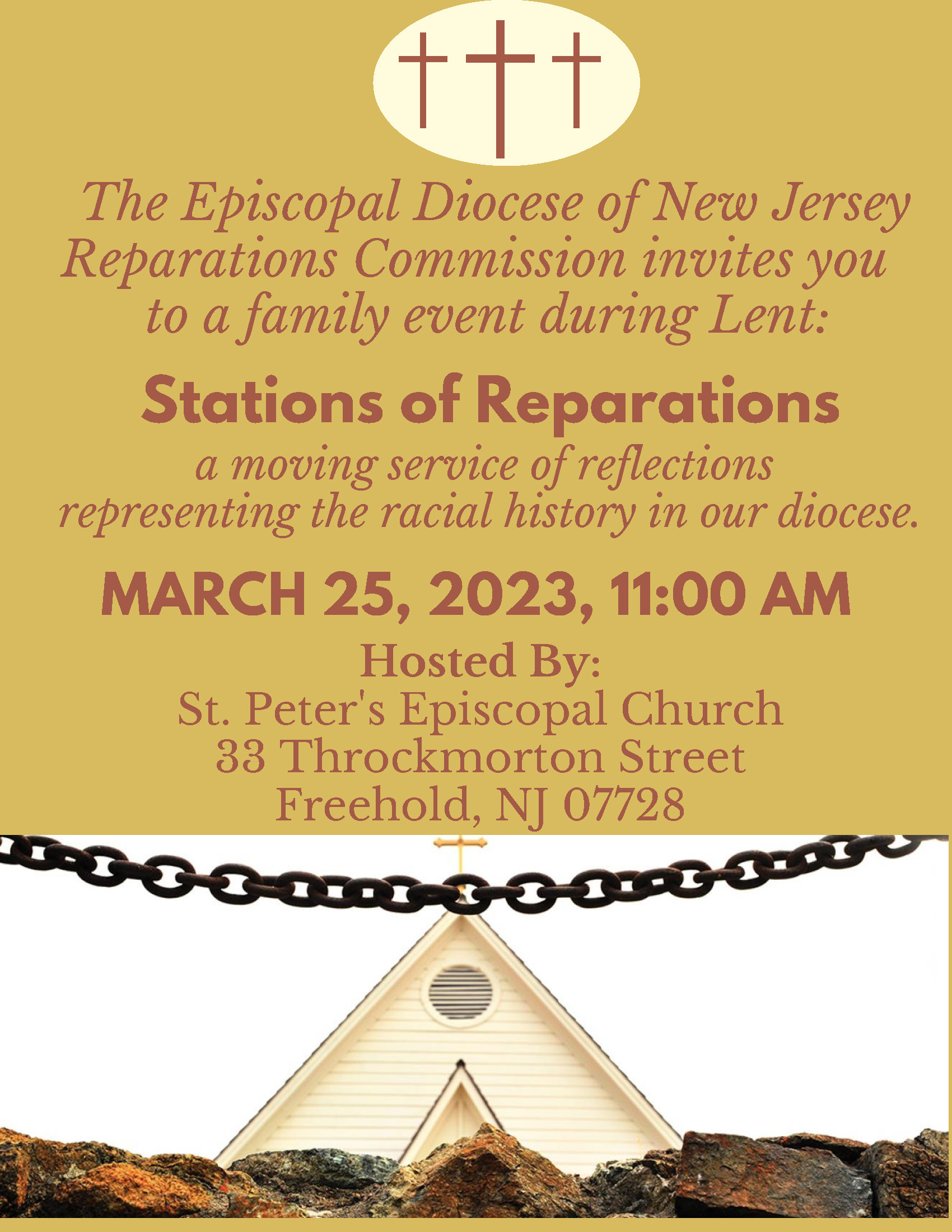 Tomorrow, Saturday, March 25, I will join a group of people and churches from the Diocese of New Jersey at St. Peter’s, Freehold for a service of “Stations of Reparations” sponsored by the Diocese of New Jersey Reparations Commission. As the Commission states in an introduction to the service in the Worship Booklet,
Tomorrow, Saturday, March 25, I will join a group of people and churches from the Diocese of New Jersey at St. Peter’s, Freehold for a service of “Stations of Reparations” sponsored by the Diocese of New Jersey Reparations Commission. As the Commission states in an introduction to the service in the Worship Booklet,
The core of the service is modeled on the traditional Stations of the Cross, in which at each Station, a portion of the story of Jesus’ Passion is told within a repeating structure of prayer….[T]he stories we will hear tell of the unjust suffering of enslaved people of African descent at the hands of White, Anglican Christians.
It is about our historical “wretchedness,” a wretchedness that continues to affect our world and lives today. Confession, penance, amendment of life are all still called for.
I am constantly challenged by St. Paul’s words in Romans, chapter 7:
I do not do the good I want, but the evil I do not want is what I do…and, further, when I want to do what is good, evil lies close at hand. It is without question the dilemma of being human. I also find great relief in Paul’s answer to this dilemma: Who will rescue me from this body of death? Thanks be to God through Jesus Christ our Lord! (Romans 7:19,21,25).
In truth, there is nothing we can do to save ourselves from this sinfulness. We always require the grace and love of God. We could never do enough to earn God’s favor, never mind our own salvation or a place in heaven. These come always and only by faith, faith in Jesus Christ (Galatians 2:16-17).
Recognizing sinfulness as part and parcel of the human condition, the great German theologian Karl Barth describes God’s grace as God’s “nevertheless.”[2] That is, God knows that we are all fractured, finite, sinful human beings, but in and through Christ Jesus, God loves the faithful “nevertheless.” Our good works and actions are not a means by which we earn God’s favor and love; they are our thankful response to God’s love abundantly shown to us in Jesus Christ who is our only “means of grace and hope of glory.”[3]
Last Sunday, I had the great joy of visiting the folks at Trinity Church, Vincentown. During Lent, some of them have been reading a book by The Reverend Tim Schenck titled Dust Bunnies in the Basket: Finding God in Lent and Easter. In this book, Fr. Schenck, who, by the way, is the creator of “Lent Madness,” writes about the observance of a “holy Lent”:
A holy Lent is a joyful Lent because it draws us closer to the heart of God. It sets us apart, keeping us focused on the spiritual priorities of our lives and our single most important relationship—our relationship with God. It’s not a time to be overly grim but an opportunity to be drawn into ever-deepening relationship with the risen Christ. Yes, there may be painful moments in this. Introspection is never easy. But in our inadequacy and weakness, the loving grace of God shines ever more brightly.[4]
As we move toward Good Friday and Calvary, continue to cleanse our hearts, and prepare with joy for the pascal feast,[5] I pray that God’s grace and love will fill you in these closing days of Lent.
In Christ, The Right Rev. William H. Stokes
The Right Rev. William H. Stokes
Bishop of New Jersey
______________________________________
Notes
[1] See Book of Common Prayer, 264.
[2] Barth, Karl The Epistle to the Romans 6th Edition tr. Edwin C. Hoskyns (E-Edition, Krause House, 1933) p. 133
[3] See the General Thanksgiving in the Book of Common Prayer—1979, p. 101
[4] Schenck, Tim Dust Bunnies in the Basket: Finding God in Lent and Easter (Forward Movement, 2015) Kindle location 54 of 551
[5] See 2nd Preface for Lent in the Book of Common Prayer—1979, p. 379.



